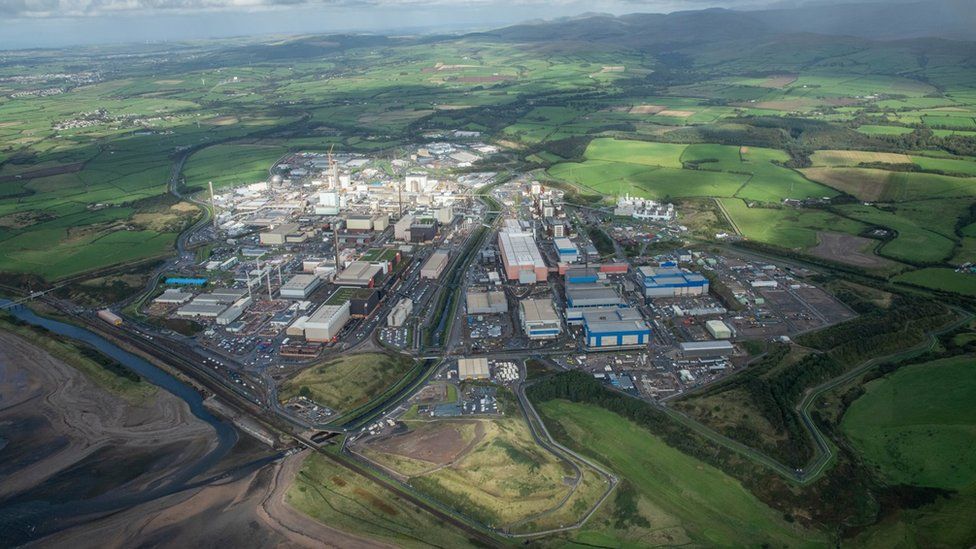Sellafield: Minister wants answers on alleged cyber hack
- Published

Energy Secretary Claire Coutinho has asked for an explanation on reports of an alleged cyber attack at Sellafield.
The nuclear site has denied claims reported by the Guardian that its computer networks have been hacked by groups linked to Russia and China.
She has written to the Nuclear Decommissioning Authority (NDA) over the "serious and concerning" allegations at the site.
Ms Coutinho has asked for the matter to be given "urgent attention".
She posted a copy of her letter on X, (formerly Twitter) in which she has demanded an explanation from the NDA, the Office for Nuclear Regulation and the Cabinet Office's National Centre for Cyber Security over the allegations of a "potentially state-sponsored" cyber attack on the facility.
Sellafield is currently used to store the UK's plutonium stockpile and high level radioactive waste, as well as other hazardous materials.
It is also home to a number of old nuclear plants, including redundant power stations and reprocessing facilities that are currently being decommissioned.
The Guardian claimed IT breaches had been detected as far back as 2015, when experts realised that malware had been embedded in computer networks.
'Critical networks'
Sellafield denied the story saying: "There hasn't been a successful attack on our networks by state or non-state actors."
It added: "Our monitoring systems are robust and we have a high degree of confidence that no such malware exists on our system.
"This was confirmed to the Guardian well in advance of publication, along with rebuttals to a number of other inaccuracies in their reporting.
"We have asked the Guardian to provide evidence related to this alleged attack so we can investigate. They have failed to provide this.
"We take cyber security extremely seriously at Sellafield.
"All of our systems and servers have multiple layers of protection.
"Critical networks that enable us to operate safely are isolated from our general IT network, meaning an attack on our IT system would not penetrate these."
Analysis by Joe Tidy, BBC Cyber Correspondent
Details on what type of hack may have occurred are very slim and Sellafield's strong denial poses many questions.
However, UK cyber authorities have warned for years that rival governments have been targeting so called Critical National Infrastructure and on paper Sellafield would be a prime target.
But Sellafield is not an active part of the electricity grid so gaining access would be less of a trophy for nation state hackers than it at first appears.
Triggering some sort of IT outage or interference would not turn the lights off as we have seen happen in other nation state attacks on power stations - for example in Ukraine by alleged Russian hackers.
But the information that Sellafield contains on how and where the UK stores its nuclear materials could be useful for UK adversaries like China and Russia.
It's worth noting of course that hacking into these kinds of targets is a key part of all national cyber espionage so it's likely that these attacks are happening all over the world from many countries including the UK.
On Tuesday The Guardian reported Sellafield had a "worsening leak from a huge silo of radioactive waste that could pose a risk to the public".
A Sellafield spokesman said: "We are proud of our safety record at Sellafield and we are always striving to improve.
"The nature of our site means that until we complete our mission, our highest hazard facilities will always pose a risk."
Follow BBC Cumbria on Facebook, X (formerly Twitter), and Instagram. Send your story ideas to northeastandcumbria@bbc.co.uk.
Related Topics
- Published6 March 2023
- Published16 August 2023
- Published11 January 2023